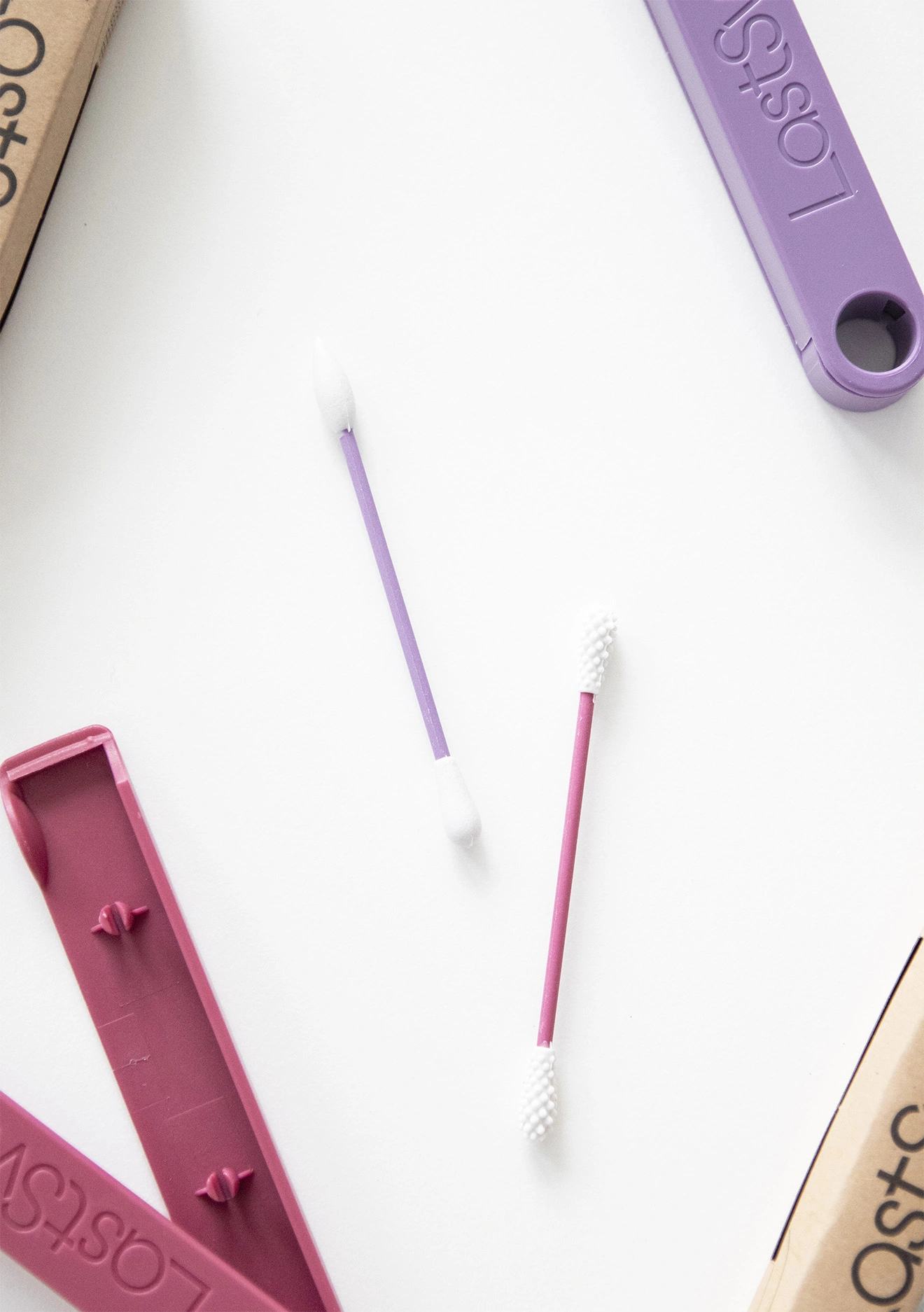
When it comes to low-waste living, there’s always a heated discussion. Everyone agrees that the best way to lead a low-waste life is by reducing the frequency of usage of anything. Still, it’s not always possible, especially when we’re talking about personal hygiene products, like q-tips. Qtips, or cotton swabs, are usually made with plastic stems, which are not recyclable. We’ve probably all seen one of the saddest pictures of a seahorse clinging to a plastic swab in the deep of the ocean. So today I’d like to discuss a few cotton swab alternatives you can opt for instead of traditional plastic ones. The intention behind this is to reduce the environmental impact associated with single-use plastic items. It is a small change, but why not take it. Instead of removing the use completely, just choose the best options to lower the consumption and be more eco-friendly:
Bamboo cotton swabs
Bamboo is one of the most sustainable materials on earth. For one, it grows extremely fast (more than 30 times faster than any regular hardwood tree), so this makes it highly renewable. Also, it is 100% biodegradable and compostable. When met with conscious environmental standards, bamboo has also minimal impact of harvesting and manufacturing. Pair it with organic sustainable cotton, and you’ve got yourself a pretty decent low-waste product.
Examples: The Humble Co. Cotton Swab pack
Paper-stem cotton swabs
After the EU ban on plastic-stemmed cotton swabs in 2021, these have become extremely popular around here. The main reason is that paper is biodegradable and breaks down over time. Also, it usually has a lower carbon footprint. This depends on the manufacturing processes, so choosing a reliable, sustainably sourced product is still very important.
Examples: Q-tips
Reusable silicone or plastic swabs
Now that’s a contradiction, right? Well, it turns out that not all plastic swabs are created equally. One of the q-tip alternatives that I found interesting is reusable swabs. Like, this LastSwab reusable swab from Last Object. The idea behind it was to create a washable, durable, long-lasting product that would eliminate the need to keep repurchasing single-use products. LastSwab creates their swab cases from plastic collected from the ocean and what I really liked the most about them: the swabs are recyclable. After they served their purpose (which is many years, since one LastSwab is meant to replace over 1000 single-use cotton swabs), they can be recycled with other plastic. If you’re an avid cotton swab user, this type of swab might be a good option to consider.
Example: Last Swab reusable swabs
Ear spoons aka ear picks
I personally do not think this is a good way to clean your ears (most doctors do not either), but I know someone who does this, so I thought I might as well list this as an option. Ear spoons are usually long sticks made from any sturdy material such as metal (usually, silver), with a tiny spoon-shaped end. It is a pretty sustainable, long-term option, but you should exert caution when using it (discussing it with your ENT might be wise).
So all in all, when choosing any low-waste alternative, it is important to consider the materials used, the longevity of the product, and end-of-life disposal options. Cotton swabs are no different. Hopefully, this short guide will help you choose the best option for you.
What kind of qtips are you using, if at all? Share in the comments!
